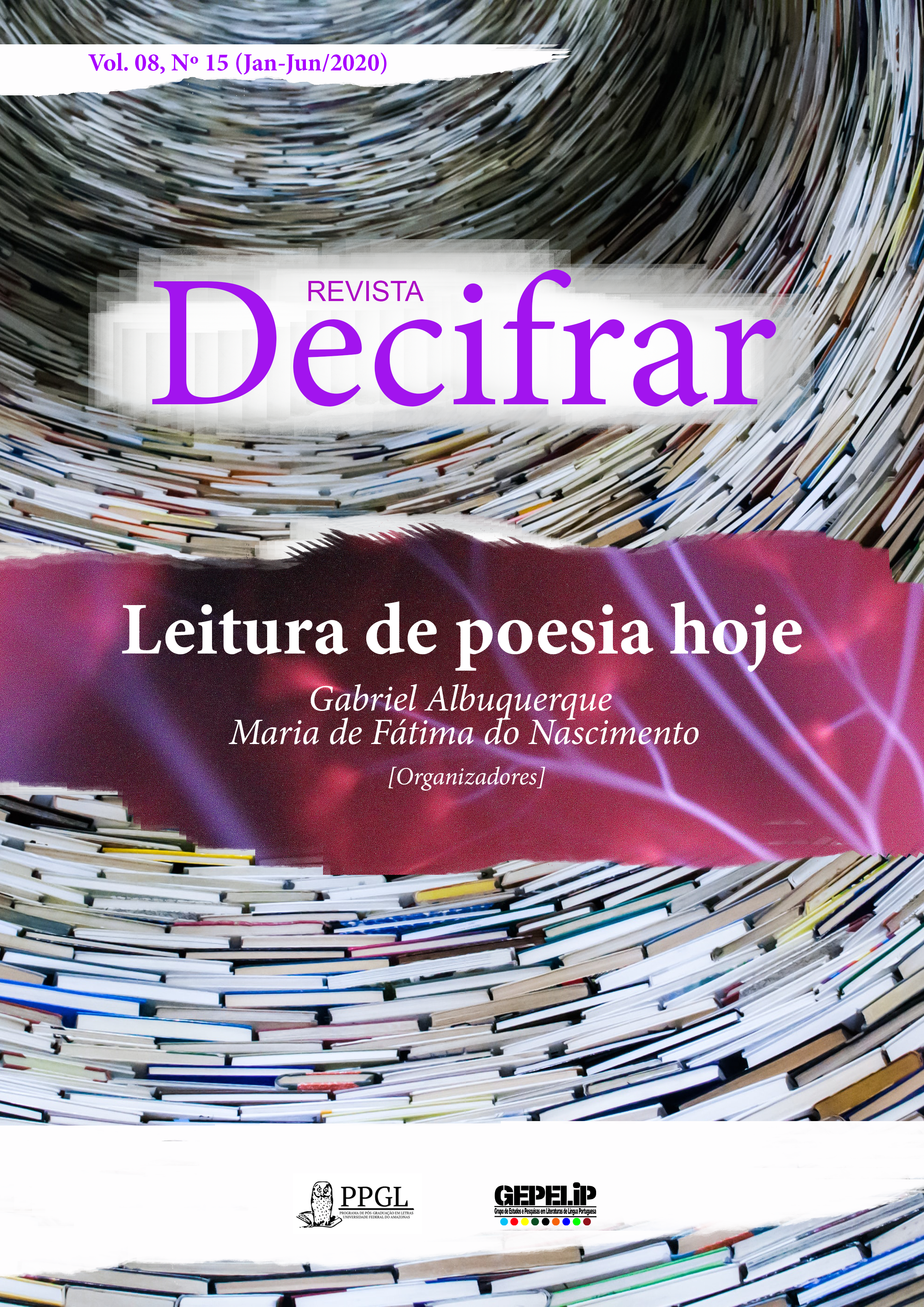A EROTIZAÇÃO DO COTIDIANO NA POÉTICA DE LUIS CARLOS GUIMARÃES
DOI:
https://doi.org/10.29281/rd.v8i15.7704Abstract
The present work analyzes thematic aspects of the work of the poet Luis Carlos Guimarães, born in Rio Grande do Norte, Brazil. The primary intention of this article, however, focuses on a specific theme: the representation of the feminine that arises from the eroticization of everyday elements. The author's poetics is clearly built based on the eroticization everyday life, ant these elements are always seen as feminine. As the erotic is invariably linked to love and sex, and this double link has led to several studies on its presence in all areas of knowledge, there is no way to deny, therefore, its importance within literature, even as a propellant of both female and male poetic making. The discussions promoted by Octavio Paz, in A double flame (1993), and Georges Bataille in Erotism (1997), were taken as theoretical support. The view of these two authors on eroticism allowed to establish the necessary connections with Luis Carlos’ poetic, realizing how erotic literature has been seen throughout history: obscene, minor, pornographic. This means that erotic literature has revolted against patterns of love and the notion of the body, which makes it transgressive, violating moral codes. Thus, the way the feminine is presented in Luis Carlos Guimarães' poetry, whether through the sensual representation of fruits or explicitly through the description of the woman's body, is significant for the understanding of the innumerable forms that sexuality and more particularly the representation of gender can be assumed in the poetic act.
Downloads
Downloads
Published
How to Cite
Issue
Section
License
Todos os artigos desta revista obedecem a licença Creative Commons - Attribution 4.0 International (CC BY 4.0).











